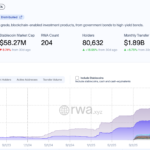Indian Real Estate Investment Trusts (REITs) are delivering average yields of 6-7.5 per cent, outpacing many mature global markets, according to a joint report released by CREDAI and ANAROCK Capital. The study, Indian REITs: A Gateway to Institutional Real Estate, was unveiled at CREDAI NATCON in Singapore, as reported by news agency ANI.Since the country’s first REIT listing in 2019, the sector has expanded to a market capitalisation of nearly $18 billion as of August 2025. With three more REITs expected in the coming four years, the total is projected to surpass $25 billion, the report highlighted.Currently, India has five listed REITs: Brookfield India Real Estate Trust, Embassy Office Parks REIT, Mindspace Business Parks REIT, Nexus Select Trust, and Knowledge Realty Trust. Of these, Nexus Select Trust is backed by rent-yielding retail assets such as shopping malls, while the others are office REITs, as per news agency PTI.REITs are structured as investment vehicles that either own and operate income-generating real estate or allow investors to earn returns from such assets without directly purchasing property, making them a key access point for institutional real estate.Shobhit Agarwal, CEO of ANAROCK Capital, was quoted by PTI as saying, “Indian REITs are late to the party, but now lead the dance. Despite its late entry compared to global peers, India has strong fundamentals.” He added that the yields of 6-7 per cent remain well above those in markets like the US, where the average is 2.5-3.5 per cent, Singapore (5-6 per cent), and Japan (4.5-5.5 per cent).Shekhar Patel, president of CREDAI, observed that more than 60 per cent of India’s current REIT value is concentrated among a small group of players, largely in Grade A office spaces tied to IT and BFSI sectors. “The future, however, holds far wider promise. As India’s cities grow, infrastructure strengthens, and the economy diversifies, REITs will expand into retail, logistics, housing, and new-age assets. This transformation will unlock unprecedented opportunities for investors and firmly place India among the most dynamic REIT markets in the world,” Patel said, as per PTI.Despite the sector’s rapid growth, Indian REITs still account for only 20 per cent of institutional real estate, compared with much higher penetration in developed markets such as the US (96 per cent), Singapore (55 per cent), and Japan (51 per cent), according to ANI. Analysts attribute this gap to the concentration of Indian REITs in Grade A commercial office assets that provide transparency and steady cash flows.The report noted that diversification is expected in the coming years, with data centres and logistics REITs likely to emerge, supported by the growth of digital services and e-commerce. Retail mall REITs may also gain traction through ongoing consolidation. By 2030, India’s REIT penetration could climb to 25-30 per cent of institutional real estate, potentially making it one of the fastest-growing REIT markets worldwide.










